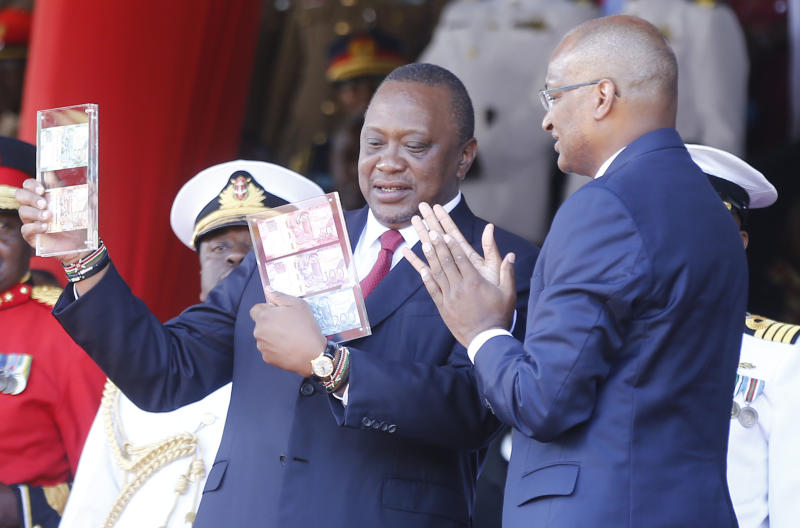
The introduction of the new currency should help greatly in the fight against corruption. There are numerous instances where people have been found with large sums of money suspected to be illegally acquired. The discovery of huge amounts of high denomination notes stashed in people’s houses by law enforcement agencies, demonstrates that there is substantial amount of money looted from public coffers. This point was driven home by Central Bank Governor Patrick Njoroge yesterday; that there is a lot of illicit money in circulation. While unveiling the new currency yesterday, the governor said all the old Sh1, 000 series shall be withdrawn. To this effect, a Gazette Notice dated May 31, has been issued, advising that Kenyans have until October 1 to exchange the notes, after which they will cease to be legal tender.
The banknotes, which embody the Big Five and are appropriately colour-coded, have a unique theme to denote the richness of our people and nature of Kenya. The Sh50 note has green energy, Sh100 note has agriculture, Sh200 note depicts social services, Sh500 note is promoting tourism, while the Sh1, 000 note symbolises governance. After rolling out the new notes, Central Bank should quickly conduct civic education to ensure that the new notes are easily recognisable by all Kenyans. According to official data, about Sh210 billion worth of Sh1, 000 notes was in circulation last year. A lot of this money could be lying idle somewhere as people hide their illegal wealth.